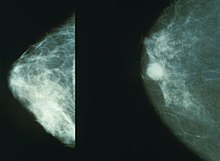
A recent study found that there is an increased risk of blood cancers occurring in children who receive X-rays and CT scans. And as the number of X-rays and CT scans go up (thus an increase in total cumulative dose of radiation), the risk of a blood cancer also increases.
The researchers refer to these increased number of cancers as "radiation-induced hematologic cancers". These include such cancers as lymphoid cancers, leukemia, and histiocytic- or dendritic-cell cancers. They estimated that the number of these radiation-induced cancers is 1 in 10 blood cancers in children.
They advise only getting X-rays and CT scans if necessary, and consider getting an MRI or ultrasound instead (if possible).
From Medical Xpress: Study finds 10% of pediatric blood cancers may stem from medical imaging radiation
A study led by UC San Francisco and UC Davis has concluded that radiation from medical imaging is associated with a higher risk of blood cancers in children.
The researchers examined data from nearly 4 million children and estimated that one in 10 blood cancers—some 3,000 cancers in all—may be attributable to radiation exposure from medical imaging. The risk increased proportionally based on the cumulative amount of radiation the children received. ...continue reading "Medical Imaging Radiation and Increased Risk Of Blood Cancers In Children"

